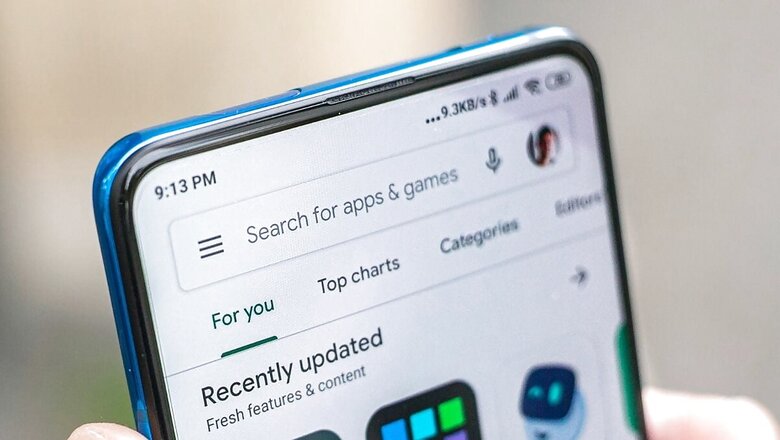
views
Android users will soon find it tough to sideload apps from other app stores and sources, something that the platform has been known for because of its open-source nature. Google has introduced an API for Android developers, granting them enhanced control over the download process of their applications, as reported. Dubbed “Play Integrity,” this API incorporates a feature that mandates users to exclusively download the app from the Google Play Store, thereby preventing side loading.
The API assesses the app's status, and if it is deemed “unlicensed,” it can restrict the app from functioning on the Android device. This new feature was recently added to the Play Integrity API for Android, which was first unveiled in May at Google I/O 2024 for Android.
Google claims the API verifies that “interactions and server requests are coming from genuine app binary running on a genuine Android device.” According to a report by Android Authority’s Mishaal Rahman, the API’s new functionality allows developers to overlay a new dialogue box that states, “Get this app from Google Play” if the software has been sideloaded from a third-party source. Users can reinstall the software from the Google Play Store by choosing the Install from Play option. According to reports, this replaces the sideloaded version with the official.
In a post on X, tipster AssembleDebug disclosed that ChatGPT – OpenAI’s conversational chatbot powered by artificial intelligence (AI) – is one of the most prominent apps that has just begun to enable this capability. Meanwhile, Tesco and BeyBlade X are two other applications that have been reported.
The Play Integrity API is reportedly going to offer “app access risk” as another new feature, in addition to prohibiting sideloaded apps. If a user installs any apps that can take control of the device or record what’s on its screen, this function can confirm it. The program may then ask users to exit it, shielding them from dangerous apps that might record their screen when they are using delicate programs. However, not every app that satisfies the requirements will result in a new access risk notification.




















Comments
0 comment